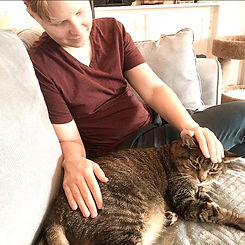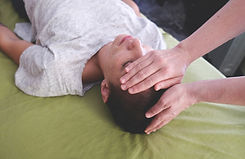What is Reiki?
Understanding Reiki: A Holistic Approach to Healing

Mikao Usui, founder of Reiki
Reiki, a Japanese term that translates to "universal life energy," is a holistic healing practice that aims to restore balance and promote well-being on physical, emotional, and spiritual levels. Rooted in ancient Eastern traditions, Reiki has gained popularity worldwide as an alternative and complementary therapy, offering a unique perspective on healing.
At its core, Reiki is based on the belief that a universal life force energy flows through all living beings. This energy is believed to be the foundation of life and is responsible for maintaining vitality and balance within the body, mind, and spirit. The Reiki practitioner acts as a conduit, channeling this energy through their hands to the recipient.
The Essence of Reiki
Principles and Techniques
Reiki practice is built upon a set of principles that guide its philosophy and approach to healing. These principles encourage individuals to live with gratitude, compassion, and mindfulness. The five main principles of Reiki are:
Just for today, I will not be angry.
Just for today, I will not worry.
Just for today, I will be grateful.
Just for today, I will do my work honestly.
Just for today, I will be kind to every living thing.
Reiki sessions typically involve the recipient lying down, fully clothed, while the practitioner gently places their hands on or near specific areas of the body. The intention is to facilitate the flow of energy, dissolve energy blockages, and stimulate the body's natural healing processes. The energy is thought to go where it is needed most, addressing physical ailments, emotional stress, and spiritual imbalances.
1 h
125 dólares estadounidenses
Benefits of Reiki
Reiki is often sought out for its potential to provide a wide range of benefits, including:
-
Stress Reduction: Reiki promotes relaxation and can help alleviate stress and anxiety.
-
Pain Management: Some individuals experience pain relief and improved comfort after Reiki sessions.
-
Emotional Healing: Reiki is believed to help release emotional blockages, leading to emotional healing and well-being.
-
Enhanced Well-being: Many report an overall sense of improved well-being, mental clarity, and a positive outlook on life.
-
Spiritual Growth: Reiki can support spiritual development by fostering a deeper connection to oneself and the universe.
-
Complementary Therapy: Reiki can be used in conjunction with traditional medical treatments to enhance the healing process.

A Personal Journey
Learning and practicing Reiki often involves a personal journey of self-discovery and self-improvement. Practitioners often find that as they develop their Reiki skills, they also experience personal growth and transformation. Reiki can be learned and practiced by individuals from all walks of life, and it doesn't require any specific religious or spiritual beliefs.
If you're interested in learning Reiki, I recommend searching for in-person and online classes in your area and paying attention to how you feel as you're visiting different teachers' websites. You might have an inner-knowing of who is the right fit for you.
In conclusion, Reiki is a gentle yet powerful holistic healing practice that harnesses the universal life force energy to promote balance, healing, and well-being. Rooted in ancient traditions and guided by a set of principles, Reiki offers a pathway to physical, emotional, and spiritual harmony in a modern world where holistic approaches to health are increasingly valued.

Photography by Brit Davis


Photography by Brit Davis
